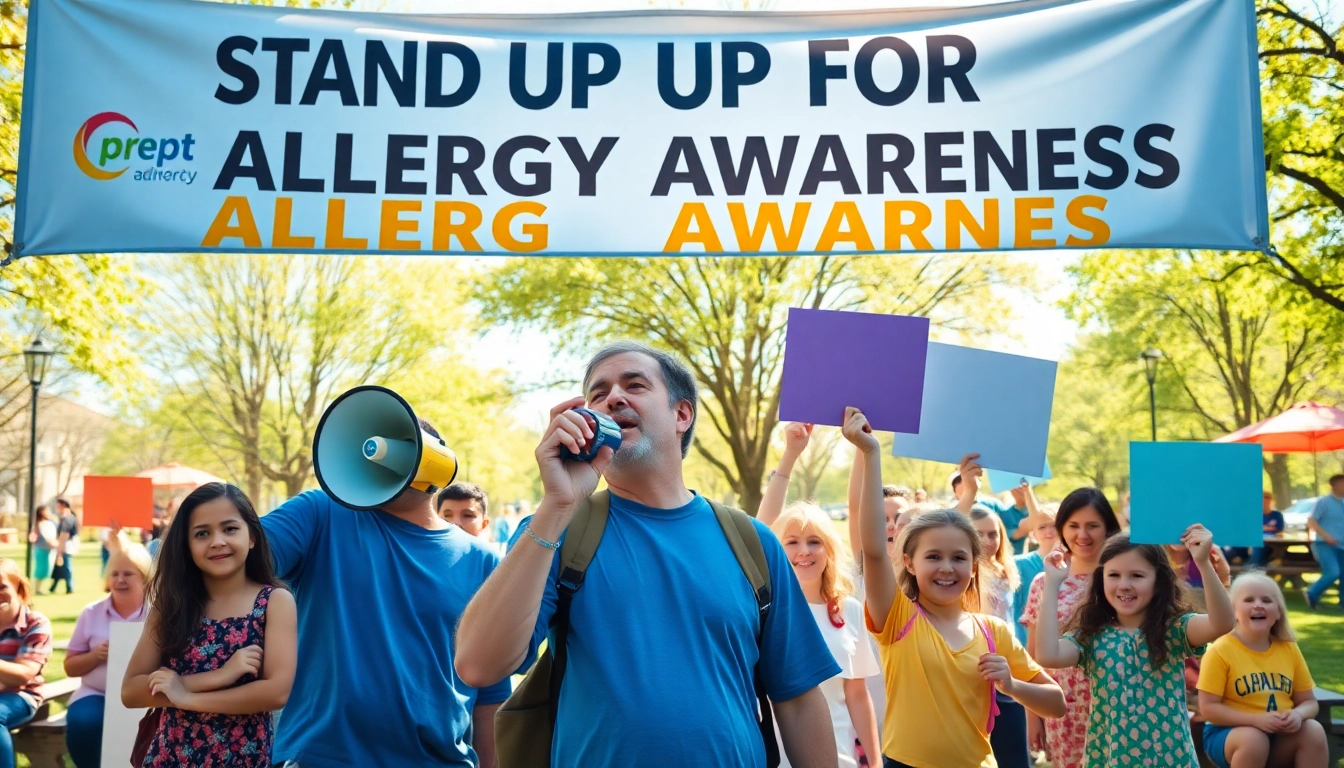Understanding Food Allergies and Their Impact
Defining Food Allergies
Food allergies are immune system reactions that occur soon after eating a certain food. In allergic individuals, the immune system mistakenly identifies a protein in the food as harmful, triggering a potentially serious reaction. Common symptoms can arise within minutes to a few hours of ingestion and can range from mild hives or digestive problems to severe anaphylaxis, which is a life-threatening emergency. Understanding and recognizing food allergies is critical, especially in a world where various dietary restrictions and preferences are becoming more prevalent. For more insights, visit https://thezackyproject.net.
Statistics on Food Allergies in the Community
The prevalence of food allergies is alarmingly on the rise. Recent statistics show that approximately 32 million Americans, including 6 million children, have food allergies. This translates to about 1 in 13 children suffering from this condition. Furthermore, studies indicate that food allergies among children have increased by 50% from 1997 to 2011. In particular, allergies to peanut, tree nuts, milk, and eggs are among the most common. The impact of these allergies spans various aspects of life, including social interactions and mental health, highlighting the urgent need for increased awareness and educational outreach.
Common Myths and Misconceptions
Despite growing awareness, several myths about food allergies persist. One prevalent misconception is that food allergies are merely food intolerances. While both conditions can cause adverse reactions to food, food allergies involve an immune system response that can lead to serious health consequences. Another myth is that individuals can outgrow their allergies; while it is true that some children may outgrow allergies to milk or eggs, many food allergies, such as those to peanuts or shellfish, are often lifelong. It’s essential for both those affected and their families to have accurate information to manage these health issues effectively.
The Zacky Project’s Mission and Goals
Advocacy and Awareness Strategies
The Zacky Project is at the forefront of advocating for individuals with allergies, especially those facing food-related challenges. The organization aims to unify awareness efforts across communities to ensure that people understand the significance of food allergies and their implications. Strategies include public campaigns to inform the general public, legislative work to advocate for policy changes, and collaborations with schools and businesses to promote allergen-safe environments. By leveraging social media platforms and community events, The Zacky Project seeks to mobilize communities and encourage advocacy movements both online and offline.
Community Engagement Initiatives
Central to The Zacky Project’s approach is fostering community engagement. Programs include workshops that educate families on recognizing and managing food allergies and local events where individuals can share their experiences and strategies. The organization promotes partnerships with local businesses to create awareness campaigns that ensure public spaces accommodate those with allergies. Additionally, by hosting annual awareness events such as “Food Allergy Awareness Week,” The Zacky Project inspires community involvement and solidarity among those affected by allergies.
Supporting Individuals with Allergies
The Zacky Project provides invaluable support to individuals with food allergies through various resources. These resources range from access to medical professionals specializing in allergies to informational leaflets on coping strategies for schools and restaurants. The organization also offers a helpline for families navigating the complexities of food allergies, ensuring that no one has to face these challenges alone. Another key aspect of support is connecting individuals through a virtual community, where they can share advice, stories, and encouragement.
How to Get Involved
Joining Local Advocacy Groups
One of the most effective ways for individuals to get involved is by joining local advocacy groups. These groups not only support The Zacky Project’s initiatives but also foster camaraderie among families dealing with similar challenges. Participants can help develop and promote local resources, participate in events, and become advocates for policy changes that improve allergy management in schools and communities. Additionally, local groups often create a support network that is essential for families navigating food allergies.
Participating in Educational Programs
Education is a pivotal component in managing food allergies. Local chapters of The Zacky Project frequently offer educational programs covering critical aspects such as recognizing symptoms, emergency response actions, and navigating dining out opportunities safely. These programs aim to equip individuals and families with the necessary knowledge to manage allergies effectively and are often tailored to specific community needs. Participants in these programs come away empowered with the right tools for advocacy and awareness.
Volunteering Opportunities with The Zacky Project
Volunteering for The Zacky Project not only aids the organization but also fosters personal growth and community involvement. Opportunities range from assisting with event organization, participating in social media campaigns, to helping with administrative tasks. Volunteers can also take part in hands-on activities like advocacy trainings, equipping themselves with the skills needed to educate others. Moreover, engaging with the project allows volunteers to build connections within the community, share experiences, and support those with similar challenges.
Resources for Parents and Caregivers
Guidelines for Managing Food Allergies
Parents and caregivers play a central role in managing food allergies. The Zacky Project offers comprehensive guidelines that cover critical aspects of allergy management, from avoiding allergens to recognizing and responding to allergic reactions. Key guidelines include reading food labels diligently, communicating allergies with schools and caregivers, and developing an action plan for emergencies. Ensuring that children are educated about their allergies is also fundamental, as this fosters independence and awareness as they grow older.
Educational Materials and Support Networks
Access to high-quality educational resources is vital for families managing food allergies. The Zacky Project curates a variety of materials, including booklets, webinars, and online articles that provide updated and practical information. These resources often highlight innovative strategies for ensuring food safety at home and in social settings. Additionally, support networks play a crucial role in providing emotional support and firsthand experience sharing among families facing similar challenges.
Online Tools and Apps for Allergy Awareness
In the digital age, technology is a significant ally for individuals with food allergies. Numerous apps exist that facilitate meal planning, track allergic reactions, and offer emergency contacts in case of an allergic emergency. The Zacky Project encourages families to leverage these technologies to enhance their management strategies. Importantly, using tools that provide real-time updates on allergen information in restaurants and food products can empower individuals to make safer dining choices while on the go.
Measuring Success in Allergy Awareness Campaigns
Tracking Community Engagement and Impact
Success in allergy awareness campaigns can often be gauged through community engagement metrics. These may include participation rates in educational events, social media interaction, and the extent of community outreach initiatives. The Zacky Project emphasizes the importance of collecting data through feedback forms, surveys, and engagement analysis to understand the effectiveness of their campaigns. By assessing these metrics, the organization can adapt its strategies to better serve the community’s needs.
Feedback and Continuous Improvement
The Zacky Project acknowledges that feedback is essential for continuous growth. Utilizing input from community members about what works well and what challenges they face helps refine current initiatives and make them more effective. This continuous loop of feedback not only enhances program effectiveness but also fosters a sense of community ownership and involvement. It encourages active participation as members feel their voices and experiences contribute to the larger advocacy goals.
Case Studies of Successful Advocacy Efforts
Examining case studies of successful advocacy efforts provides valuable insights and inspiration for future initiatives. The Zacky Project highlights various local and national campaigns that have effectively raised awareness and increased understanding of food allergies in vibrant ways. These success stories may illustrate unique approaches to community mobilization, innovative educational strategies, or successful partnerships with public health organizations. By sharing these narratives, The Zacky Project aims not only to celebrate successes but to serve as a model for other organizations striving to make an impact.



